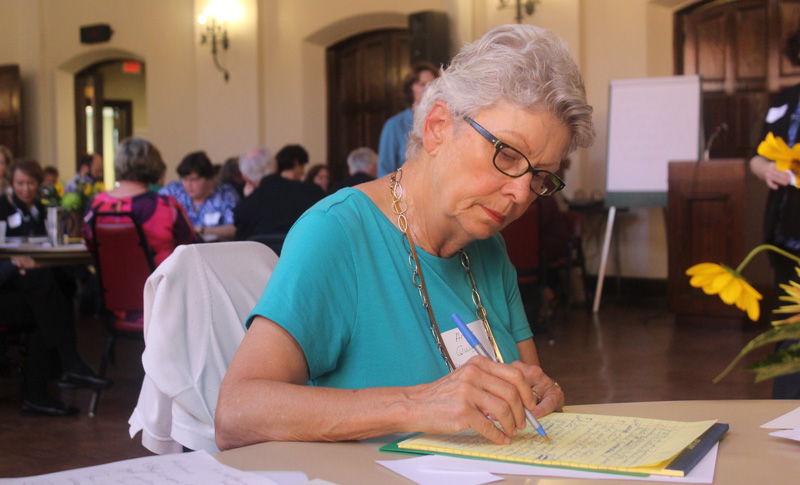
COLUMBIA — If a child is shown love, the power of education and the written word, the possibilities are endless.
That was the uplifting message from Freeman Hrabowski, keynote speaker at the 2016 South Carolina Bishops’ Dialogue on Public Education.

The Oct. 12 event at Trinity Cathedral was sponsored by the coalition of Lutheran, Episcopal, United Methodist and Roman Catholic bishops formerly known as LARCUM. It has expanded to include the African Methodist Episcopal Church and will now be known as the Fellowship of South Carolina Bishops.
Since 2014, the bishops have made improving public education in South Carolina a priority, and Hrabowski’s speech emphasized how good schools and a commitment from the community can help even the poorest children succeed.
He is president of the University of Maryland at Baltimore County, known nationwide for its focus on inclusive education and academic innovation. He was recently named one of the 100 most influential people in the world by Time magazine.
Hrabowski gave a room packed with clergy and laity from around the state a message of hope.
He stressed that early childhood programs must be increased because the pre-K and kindergarten years are so important to child development, especially for children raised in poverty. Focusing on reading skills early in life can prepare children to learn subjects that are crucial in a world where good jobs increasingly require sharp thinking skills, problem-solving and skill in math, science and technology, he said.
“Give a child structure, high expectations and love, and everything is possible,” he said.
He described successful programs at his university, including one that brings first-time juvenile offenders onto campus to live and work in a highly structured environment focused on academics and life skills.
Hrabowski encouraged colleges and universities to increase their involvement with public schools, and said churches also have a crucial role to play in public education.
He noted many students come from families dealing with stress and dysfunction caused by poverty, and as a result often don’t have strong relationships with adults who can provide encouragement. He urged clergy and volunteers to reach out to local schools and form relationships with students through mentoring programs, tutoring and other initiatives. Volunteers who read to children or listen to them read can spark a love and respect for learning that lasts a lifetime.
A panel of speakers discussed ways to carry out his suggestions.
Tammy Pawloski, director of the Center of Excellence to Prepare Teachers for Children of Poverty, said it is crucial to maintain high expectations for all students.
“Too often there are myths that follow poor children, that they can’t learn,” she said.
South Carolina Superintendent of Education Molly Spearman said improving education also requires supporting teachers and reaching out to parents who need additional guidance in helping children learn. She also discussed apprenticeship programs that bring students into the workplace and help them discern a career path. Traditional four-year college is not always the answer, she said, and many students find a passion for work that can be learned through programs at technical colleges.
Bishop Skip Adams of the Episcopal Church in South Carolina said churches must realize that they have a role in public education.
“If you are a member of the clergy and your local school doesn’t know who you are, or know your church, you have missed an opportunity,” he said.
Miscellany photo/Christina Lee Knauss: Anne Quigley of Our Lady of Perpetual Help Church in Camden writes out answers to discussion questions at the Bishops’ Dialogue on Education held Oct. 12 in Columbia.

